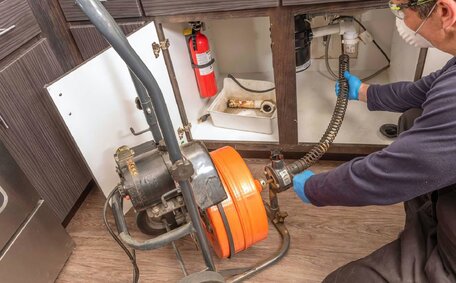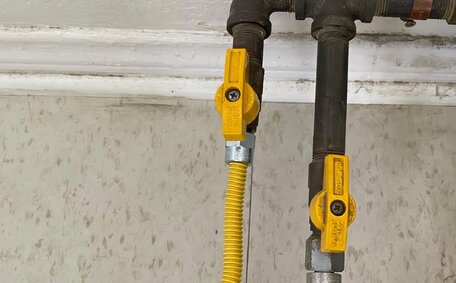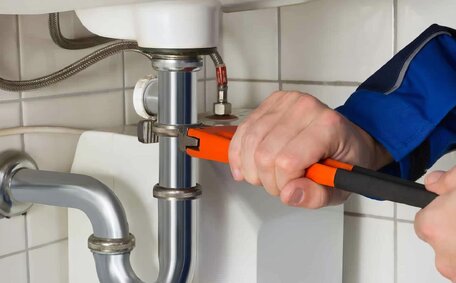Introduction to weather-related plumbing emergencies and problems
How do extreme weather conditions impact your home’s plumbing system? Weather extremes can affect stormwater systems, often causing significant stress on blocked drains and demanding urgent attention. From extreme heat to heavy rainfall and freezing temperatures, various weather conditions exert pressure on all plumbing components, including your roof, pipes, drains, and the water heater.
Comprehending the various weather impacts on plumbing can help you know about preventative measures and enable you to address plumbing problems effectively as they occur. Preparing for weather-related plumbing issues is essential to minimize damage and avoid costly repairs.
In this article, we discuss the most common plumbing emergencies spurred by varying weather conditions like hot, cold, wet and dry weather. This article offers practical tips to protect your plumbing from weather damage and steps to address common weather-induced plumbing emergencies.
Impact of extreme heat and dry weather on residential plumbing
Pipe leaks
Extreme heat causes pipes to expand, often resulting in leaks at joints and connections. As temperatures rise during heatwaves, the thermal expansion can waste water and strain your water heater, potentially leading to seal failures. Pipes can also develop leaks which can appear in concealed spaces like walls, floors and ceilings.
Low water pressure
In the warmer months, increased demand on your hot water system from hot, dry weather can result in temporarily decreased water pressure. The strain on hot water systems during these times can impact your water infrastructure, causing showers, taps, and appliances to sputter.
Tree root infiltration
During droughts, and when heavy rain can lead to saturation, the soil around your trees dries out, leading them to seek any water source, such as underground pipes plumbing. Tree roots can penetrate cracks and joints, obstructing water flow into your plumbing systems. Left untreated, invasive tree roots can damage your pipes, causing significant issues and blockages.
Residents of Sydney are familiar with the scorching summers brought on by La Niña weather patterns. La Niña weather patterns often bring heatwaves topping 40°C.
By experiencing extreme temperatures, we learn the impact of weather extremes on plumbing, which can lead to leaks, reduced pressure, and tree root infiltration. Staying alert and acting swiftly can help protect your plumbing assets and manage water flow, avoiding catastrophe with issues coming your way during summer heat.
Preparing plumbing systems for winter
Preparing your plumbing for winter is essential to mitigate the adverse effects of cold weather and prevent burst pipes, leaks, and other issues. There are several key steps you should take:
Insulate pipes
Insulating exposed pipes and fittings before the onset of winter can prevent the risk of them freezing and causing concern. During the colder months, use specific pipe insulation wraps or hot water pipe covers to protect against issues that can lead to potential lead leaks. During winter, foam tubing insulation works well for protecting metal pipes in unheated areas like crawl spaces, attics and garages.
Seal leaks and cracks
Regularly inspect your pipes and plumbing electrical components for leaks or cracks, sealing them with waterproof plaster or epoxy resin. It’s crucial to seal even the smallest leaks promptly, as this can help prevent a burst pipe when freezing temperatures strike.
Install heat trace cables
Protect exposed water lines with heat trace cables to maintain a non-freezing temperature. Heat trace cables maintain a constant temperature, helping to prevent system freeze-ups. They’re ideal for pipes in danger zones.
Drain exterior taps and pipes
It’s important to turn off the water supply and thoroughly drain outdoor taps and irrigation lines to prevent freeze damage in your plumbing system. Ensuring no water remains stagnant in exterior pipes during the freezing cold weather leaves no room for complacency.
Maintain suitable temperatures
Keep your house heated to at least 13°C throughout winter, benefitting seldom-used spaces and protecting your home at all times. Programmable thermostats help regulate suitable ambient temperatures for your family and ensure your water heaters function at consistent levels.
Adhering to these crucial steps for cold weather preparation improves your plumbing’s chances of surviving the winter intact. Don’t hesitate to call our team of licensed Sydney emergency plumbers if you require urgent support with pipe insulation or handling any winter-related issues.
Impact of rain, humidity and storms
Heavy rain and high humidity challenge plumbing systems, straining your water system and causing blockages. Prolonged moisture and poor water chemistry can accelerate corrosion and rust, while storms and extreme weather can affect your plumbing infrastructure.
Blocked drains
Intense downpours commonly clog drains and gutters by sweeping in debris. To prevent build-up, it’s essential to regularly clean your drains and consider installing gutter guards.
Sewer backups
A sump pump alleviates flood pressure on sewer lines, preventing backflow into homes by directing water away from your property. Installing a backflow valve and waterproofing manholes can safeguard against water backups during floods.
Hidden leaks
High humidity hastens corrosion of pipes and fittings, and water leaks can lead to water damage inside moist walls and ceilings. Be particularly wary of water stains or signs indicating plumbing leaks to catch issues early before they escalate to substantial damage.
As an east coast area, Sydney’s plumbing is vulnerable to the humid, stormy climate. Sudden storms can unexpectedly wreak havoc, leading to problems like blocked drains and sewage overflows, underlining the value of a reliable plumbing service. Regular maintenance and prompt service from your local plumber are key to protecting your plumbing.
Proactive prevention of weather-related emergencies
Regular maintenance and inspection
Proactive maintenance is the best defence against weather-related plumbing disasters.
Regularly inspect pipes, joints, seals, and insulation for any problems. Monitor tree root growth around your underground pipes.
Pipe inspection
Schedule annual pipe inspections using camera technology to assess their condition and detect intrusions. Repair any compromised sections immediately to prevent further damage such as buckling or bursts.
Tree root removal
Carefully remove invasive tree roots near pipes and install root barriers to prevent further damage and blockages.
Emergency preparedness
Assemble an emergency kit and create a response plan to prepare your home for plumbing disasters. This includes:
- Knowing how to turn off the main water line at the shutoff valve enables you to quickly halt the flow in case of leaks.
- Keep our emergency plumbing contact number accessible for immediate assistance during plumbing emergencies.
- Gather supplies such as torches, tools, protective gear, bottled water, and towels for your emergency kit.
Vigilance in maintenance, inspection, and emergency preparedness significantly reduces risks to your plumbing from weather conditions. Don’t hesitate to call for our plumbing services if you need assistance from a professional plumber to keep your system safeguarded throughout the time of year.






